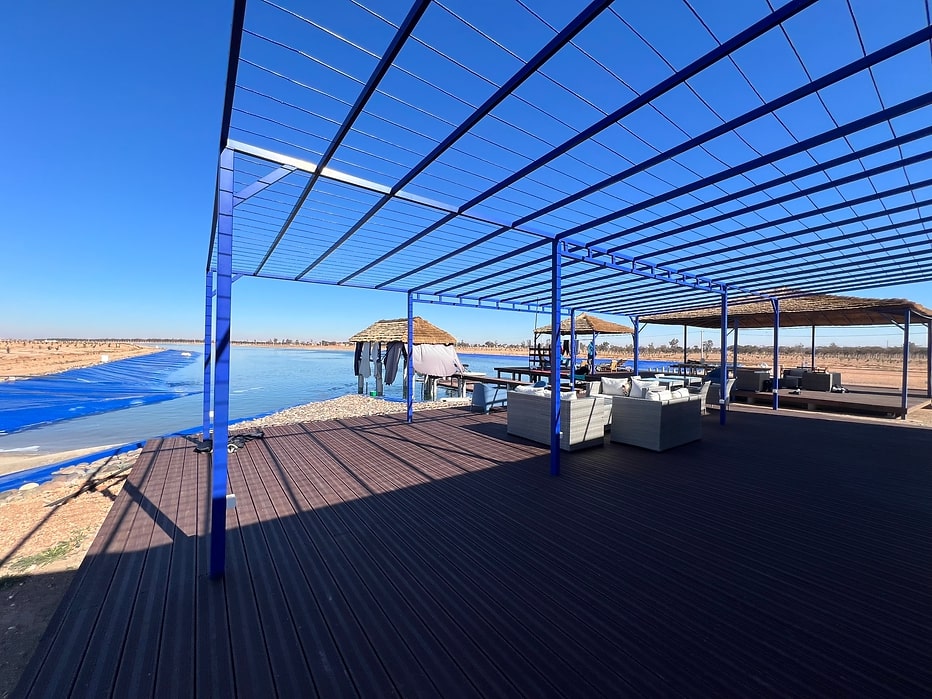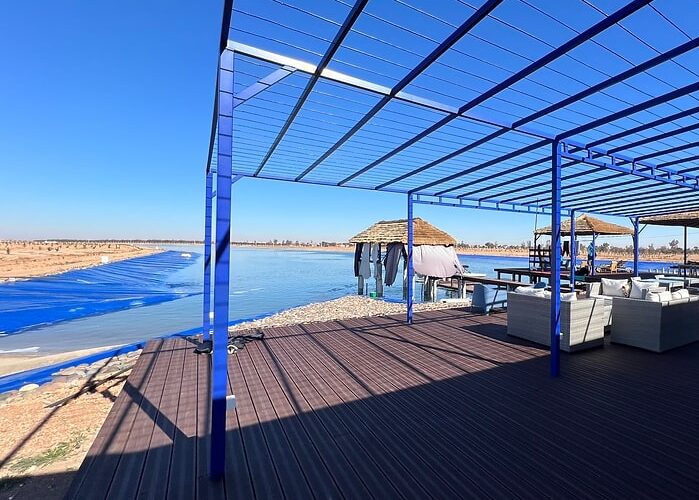K1000 Marrakech Pro site closed due to local backlash

Image: k1000marrakechpro.com
By Jack Burden
The Jbilet Mountains Watersports Complex, a man-made waterski facility in Marrakech, Morocco, has been permanently shut down amid growing environmental concerns and public outcry. Earlier this year, the venue hosted the inaugural K1000 Marrakech Pro, the first Waterski Pro Tour event on the African continent. However, the facility’s closure followed local criticism over its environmental impact and lack of community involvement.
Reports indicate that the artificial lake created for the complex relied heavily on groundwater extraction, raising alarms during a period of severe drought in Morocco. Local residents and environmental activists questioned the legality of the drilling permits and the extensive use of scarce water resources. Although the event was not advertised locally in Marrakech, the professional slalom competition’s high visibility—especially on social media and international platforms—amplified these concerns, leading to increased public pressure on regional authorities.
The facility, which resembled a giant swimming pool with a full artificial lake liner, required a significant financial investment to build. It has now reportedly been filled with sand, marking a swift and dramatic end to what was once considered the start of a new frontier in professional water skiing. While the owner initially intended the lake for personal use, the decision to host a major international tournament is believed to have contributed to its downfall. The increased media attention and public scrutiny ultimately led to its closure.
Water skiing has increasingly become a pastime for the wealthy and elite, a natural progression for a sport that relies on luxury towboats, precision engineering, and controlled water conditions. However, the closure of the Jbilet Complex serves as a cautionary tale about the importance of engaging with local communities. While it is a tragic outcome for a passionate family that sought to bring water skiing to their home country, the event’s exclusion of spectators and local businesses—reportedly a chief criticism from the community—meant that the immense resources invested in the facility were not viewed as a benefit, particularly in a region grappling with water scarcity.

